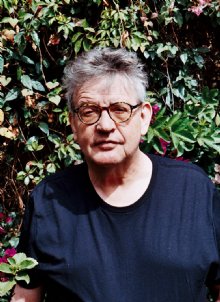Introduction
"Quoof" is a poetry collection composed by Paul Muldoon, an Irish poet extensively considered among the most gifted and innovative contemporary poets. Released in 1983, "Quoof" is Muldoon's fourth collection and also it discovers motifs of identity, language, love, as well as the partnership in between the individual and the political. Via a combination of individual as well as historical narratives, the collection showcases Muldoon's etymological dexterity, intertextuality, and his affinity for word play heres as well as wordplay.
Design as well as Language
One of the most striking elements of Muldoon's operate in "Quoof" is his distinctive style as well as use of language. He employs linguistic experimentation, weaving with each other a tapestry of words as well as expressions that produce distinct and vivid imagery for the visitor. Much of the poems within the collection are marked by a dense, allusive quality that invites numerous readings and analyses. For instance, the eponymous poem "Quoof" is a meditation on the word "quoof", an Irish informality for a warm water container. With this word, Muldoon discovers the tricks of language as well as its power to evoke memories and also links to the past.
Muldoon likewise utilizes intertextuality, drawing from personal experiences, Irish folklore, and a range of literary resources. In "The Wishbone", Muldoon describes a range of texts, from the Bible to the jobs of James Joyce, while using the photo of a wishbone as a symbol for the personal as well as political issues faced by individuals. Similarly, in "Birch Grove, Armenia", the poet weaves with each other the tales of biblical figures, Armenian history, as well as his very own memories of war-torn Belfast.
Identity and also the Personal
Throughout the collection, Muldoon explores themes of identity and individual background. The poet often draws on his own Irish background and also childhood, linking this with wider historic occasions and also cultural stories. For instance, in "Quoof", Muldoon remembers positioning a warm water container under his bed as a child, where it "beamed like mercury". This calling forth of youth memories revives the violence of rural Irish life and the poet's progressing relationship with his homeland.
In some cases, the rhymes in "Quoof" touch on even more intimate aspects of Muldoon's personal life. "Mules" is a poignant expedition of the poet's tumultuous connection with his dad, while "The More a Man Has the More a Man Wants" looks into the malfunction of his marriage.
Politics and History
Past the individual, "Quoof" likewise engages with wider political and also historic styles, particularly in relation to Ireland and its turbulent past. Muldoon addresses the physical violence and sectarian battles of Northern Ireland in rhymes such as "Hedgehog" and also "Cuba". In these works, the poet reviews the effect of battle and also problem on people, family members, as well as areas.
Additionally, a number of the poems highlight the significance of cultural and historic understanding. "Anseo" tells the tale of an Irish schoolteacher who shows Latin while dressed in an IRA attire. The poem highlights the determination of social memory and also the affiliation between personal and also national identity.
Final thought
"Quoof" is a powerful and also provocative collection of poems that showcases Paul Muldoon's distinct capability to intertwine individual stories with more comprehensive historical and political styles. Through etymological dexterity and intertextual referrals, Muldoon's work invites viewers to assess the intricate nature of identity, language, love, and background. Ultimately, "Quoof" is a testament to the poet's gifted use of language as well as images, in addition to his deep understanding of the human experience.
Author: Paul Muldoon
 Paul Muldoon, Pulitzer Prize-winning Irish poet born in 1951, known for his complex wordplay and poetic experimentation. Read his quotes here!
Paul Muldoon, Pulitzer Prize-winning Irish poet born in 1951, known for his complex wordplay and poetic experimentation. Read his quotes here!
More about Paul Muldoon
 Paul Muldoon, Pulitzer Prize-winning Irish poet born in 1951, known for his complex wordplay and poetic experimentation. Read his quotes here!
Paul Muldoon, Pulitzer Prize-winning Irish poet born in 1951, known for his complex wordplay and poetic experimentation. Read his quotes here!